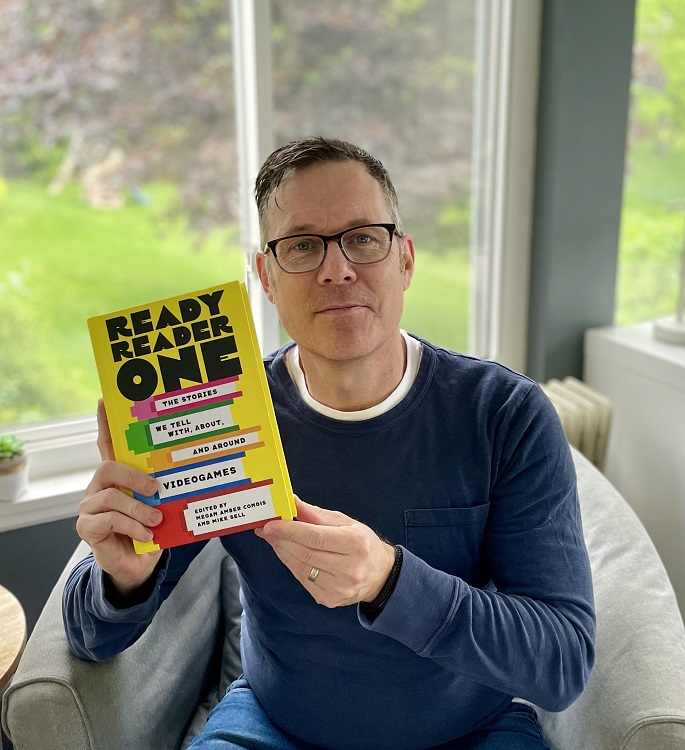
Mike Sell (Department of Language, Literature, and Writing) and co-editor Megan Amber Condis (Communication Studies, Texas Tech University) have published a collection of scholarly essays about the stories we tell with, about, and around video games.
Ready Reader One explores the many ways literature depicts, engages with, and imagines video games and gamers—what Sell and Condis call “videogame literature.” The 17 authors included in this collection take an expansive view of that genre, with essays that consider written works ranging from life writing to speculative fiction to videogame guides created for the internet to graphic novels designed for young and developing readers.
Among the contributors is Literature and Criticism doctoral student Aaron Heinrich, whose essay on Dennis Cooper’s God Jr. and Jeanette Winterson’s The Gap of Time examines how those writers depict videogames, videogame players, and videogame designers in order to “incline their readers toward deeper definitions of humanness”; in particular, the humanness of mortality and mourning. Heinrich wrote the first drafts of that essay while a student in Sell’s Playful Literature seminar.
In his introduction to the collection, Sell asks, “Where is the literature in gaming literacy?” Understanding video games is increasingly vital in an era when the videogame is the dominant entertainment medium and an increasingly ubiquitous presence in our daily lives. But to truly understand the impact of video games, we need to read the stories we tell with, about, and around them. Videogames are always wrapped up in storytelling, whether by the games themselves or by the people who play them. As Timothy J. Welsh of the Journal of Games Criticism writes, the collection “not only addresses a significant void in the story of video games and culture but also compellingly argues for the political urgency of critical engagements with gaming literacies.”